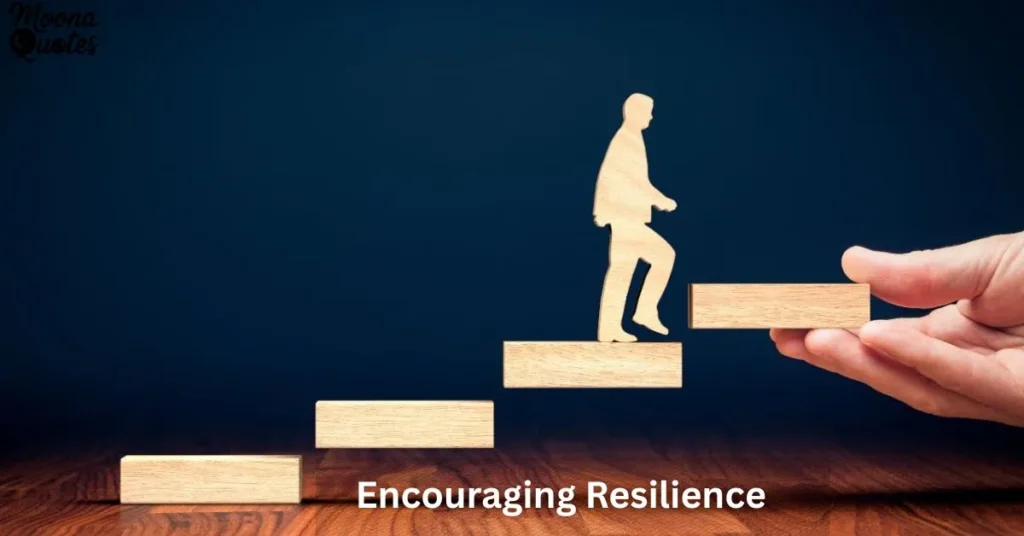Getting rejected from college or university can be heartbreaking. It’s a tough moment that can shake someone’s confidence. If you know someone going through this, your words can help.
The right support can make them feel valued and hopeful. In this article, you’ll find 78 examples of what to say. These messages offer comfort, encouragement, and motivation.
Some focus on positivity, while others provide practical advice. Whether they need reassurance or a fresh perspective, you’ll find the right words here.
Comforting and Supportive Messages
Rejection feels painful, but kind words can bring comfort. Support can ease their disappointment. Let them know they are not alone in this.
- “I know this hurts, but you are not alone.”
- “Rejection doesn’t define you; your efforts and dreams still matter.”
- “You are strong, and this moment won’t last forever.”
- “This doesn’t mean failure, just a different path ahead.”
- “Your worth isn’t measured by one college’s decision about you.”
- “Take your time to process; it’s okay to feel disappointed.”
- “Many great opportunities are still waiting for you out there.”
- “One rejection doesn’t mean you won’t achieve your future goals.”
- “This setback can lead to even better opportunities ahead.”
- “Your journey isn’t over; it’s just taking a new direction.”
- “You are talented, and rejection doesn’t take that away.”
- “You worked hard, and that effort still means something.”
- “Stay hopeful, because great things can still happen unexpectedly.”
- “You are more than a single decision from one institution.”
- “Your value comes from who you are, not this result.”
- “There’s still a bright future ahead, even if it’s different.”
- “Rejection doesn’t cancel out your strengths and unique abilities.”
- “This could be a redirection toward something even better.”
- “Believe in yourself because your potential is still limitless.”
- “I’m here for you, and I believe in you.”
Validating Their Emotions
Feeling upset is normal after rejection. Acknowledge their emotions without judgment. Let them express their thoughts freely.
- “It’s okay to feel sad; your feelings are completely valid.”
- “Rejection hurts, and you have every right to be upset.”
- “Don’t rush to feel better; take your time to heal.”
- “It’s normal to feel frustrated; your emotions make perfect sense.”
- “Allow yourself to grieve this; it’s part of the process.”
- “You worked hard, so disappointment is a natural response.”
- “Feeling lost or confused is understandable after such big news.”
- “Crying or venting is okay; your emotions deserve to be acknowledged.”
- “No need to pretend you’re okay; express how you feel.”
- “Everyone faces rejection; you’re not alone in this struggle.”
- “Acknowledging disappointment helps you heal and move forward stronger.”
- “You’re allowed to feel discouraged, but don’t lose hope.”
- “I hear you, and your feelings are completely understandable.”
- “It’s not a weakness to admit this rejection hurts a lot.”
- “You are human, and disappointment is a natural reaction.”
- “Processing emotions takes time; don’t pressure yourself to move on.”
- “It’s okay to feel angry, sad, or confused right now.”
- “You’re doing your best, and your feelings are still valid.”
- “Even strong people feel hurt, and that’s completely normal.”
- “You don’t have to face this alone; I’m here.”
Encouraging Resilience

Rejection is tough, but not the end. Encourage them to keep pushing forward. Strength grows through overcoming obstacles.
- “This challenge will make you stronger in the long run.”
- “Every successful person has faced rejection at some point.”
- “Rejection is not the end, but a new beginning.”
- “You are resilient, and this will not break you.”
- “Difficult moments shape the strongest and most determined people.”
- “Failure is often a stepping stone toward something greater.”
- “Use this setback as fuel to push forward harder.”
- “Your journey continues, and success is still within reach.”
- “Resilience means bouncing back stronger after every setback.”
- “This rejection will not stop you from achieving great things.”
- “One closed door leads to another unexpected opportunity ahead.”
- “You have overcome obstacles before, and you’ll do it again.”
- “Keep moving forward because persistence always pays off eventually.”
- “This is just a temporary detour, not a dead end.”
- “Turn this disappointment into motivation for future achievements.”
- “You’re capable of achieving your dreams, no matter what.”
- “Every setback is a setup for an even greater comeback.”
- “Your hard work will pay off, just in another way.”
- “You are unstoppable, even when faced with temporary roadblocks.”
- “Keep believing in yourself because better days are ahead.”
Motivational Quotes To Cheer Up
A few inspiring words can uplift their spirit. Quotes remind them to stay hopeful. Positivity can change their mindset.
- “Success is not final, failure is not fatal. Churchill”
- “Believe you can, and you’re halfway there. Roosevelt”
- “Opportunities often come disguised as temporary setbacks. Jobs”
- “Failure is simply the opportunity to begin again. Ford”
- “You are braver than you believe. A.A. Milne”
- “It always seems impossible until it’s done. Mandela”
- “The comeback is always stronger than the setback. Unknown”
- “Rejection is just a redirection, not a roadblock. Unknown”
- “Your time will come, just keep moving forward. Unknown”
- “One rejection doesn’t define your future success. Unknown”
- “Every great success story begins with a struggle. Unknown”
- “Success is built on perseverance, not immediate acceptance. Unknown”
- “Don’t let one no stop you from many yeses. Unknown”
- “Doubt kills more dreams than failure ever will. Suzy Kassem”
- “Failure is a bruise, not a tattoo. Jon Sinclair”
- “Keep your face toward the sunshine. Walt Whitman”
- “Stars can’t shine without darkness. Unknown”
- “Tough times don’t last, but tough people do. Robert Schuller”
- “Stay patient; trust the timing of your journey. Unknown”
- “Dream big, work hard, and never give up. Unknown”
Practical and Forward-Thinking Support
Help them explore new opportunities beyond rejection. Discuss alternative paths and solutions. Guide them toward their next step.
- “Explore alternative colleges that align with your goals and interests.”
- “Consider reapplying next year with an even stronger application.”
- “Gap years can provide valuable experience and personal growth opportunities.”
- “Community colleges offer great pathways to transferring later.”
- “Look into online courses or certifications to boost your skills.”
- “Networking can open unexpected doors to new opportunities.”
- “Internships and work experience can enhance future applications.”
- “Alternative education paths can still lead to incredible careers.”
- “Taking time to reassess can be a smart move.”
- “Some of the best success stories started outside traditional routes.”
- “Your dream school isn’t the only way to succeed.”
- “Entrepreneurship is an option if you’re passionate about business.”
- “Skill-building courses can strengthen your next application.”
- “Mentors can help guide your next career or education steps.”
- “Volunteering can add value to your resume and experience.”
- “Consider studying abroad for a fresh educational experience.”
- “Every path to success looks different, and that’s okay.”
- “Temporary setbacks can create long-term strengths and adaptability.”
- “Passion and persistence matter more than one school’s decision.”
- “Opportunities arise when you keep an open mind.”
Related Blog: What To Say And Show At End Of Presentation: 5 Videos With Tips
Reminders of Their Strengths, Reassure Their Value

Rejection does not define their abilities. Remind them of their unique talents. They still have so much potential.
- “You are talented beyond what any college application can measure.”
- “One decision doesn’t change all your hard work and dedication.”
- “You have unique strengths that no rejection can take away.”
- “Your value is not based on any acceptance or rejection.”
- “You are smart, capable, and full of potential.”
- “The right opportunity will recognize your incredible skills and talents.”
- “You have so much to offer the world beyond academics.”
- “Your strengths go far beyond a college admission decision.”
- “Many paths exist for talented, hard-working people like you.”
- “You are worthy of success, no matter this outcome.”
- “One school’s rejection does not define your entire future.”
- “You have already achieved so much and will achieve more.”
- “Your intelligence and creativity shine far beyond this moment.”
- “You are capable of turning this into an opportunity.”
- “Believe in yourself because your potential is limitless.”
- “Your journey is just beginning, and it’s full of possibilities.”
- “This moment does not determine your entire life’s direction.”
- “Great things are still ahead because you have incredible strengths.”
- “You make more than one decision, and your future is bright.”
- “Your abilities will take you far, no matter what happens.”
Future-Focused Positivity, Providing Perspective.
This setback is temporary, not permanent. Help them see long-term possibilities. Great things can still happen ahead.
- “This is one moment in a much bigger life journey.”
- “Success stories are often filled with unexpected twists and turns.”
- “Your future holds incredible opportunities you haven’t even imagined yet.”
- “One rejection doesn’t stop the future success waiting for you.”
- “This moment will pass, and new doors will open.”
- “Many successful people faced rejection before finding their true path.”
- “The best opportunities sometimes come from unexpected setbacks like this.”
- “Your journey is still unfolding, and great things await.”
- “This is a redirection, not a permanent roadblock.”
- “Your skills and talents will lead to many future successes.”
- “Hardships often lead to the most rewarding achievements later.”
- “Rejection today doesn’t mean you won’t succeed tomorrow.”
- “A setback now might lead to a breakthrough later.”
- “Your goals are still achievable with persistence and passion.”
- “Some paths to success take longer, but they’re just as meaningful.”
- “You will look back and see this as growth.”
- “Better opportunities may come that align perfectly with your dreams.”
- “The future is still full of amazing possibilities for you.”
- “Your story is still being written, and it’s far from over.”
- “One door closing means another one is about to open.
Share Inspiring Stories and Examples
Success often comes after failures. Share stories of people who overcame rejection. Real-life examples inspire and motivate.
- “Many famous people started with rejection before finding success.”
- “J.K. Rowling faced rejection before becoming a bestselling author.”
- “Oprah was fired before becoming a media icon.”
- “Steve Jobs dropped out and still changed the world.”
- “Walt Disney was told he lacked creativity before succeeding.”
- “Michael Jordan was cut from his team before becoming great.”
- “Elon Musk faced failures before building successful companies.”
- “Vincent Van Gogh only sold one painting while alive.”
- “Colonel Sanders was rejected 1,000 times before KFC succeeded.”
- “Harrison Ford was told he’d never make it in acting.”
- “Steven Spielberg was rejected by film school multiple times.”
- “Albert Einstein struggled in school but became a genius.”
- “The Beatles were rejected by record labels before rising to fame.”
- “Thomas Edison failed 1,000 times before inventing the light bulb.”
- “Arianna Huffington was rejected by 36 publishers before success.”
- “Henry Ford went bankrupt before revolutionizing the car industry.”
- “Charles Darwin’s ideas were dismissed before changing science forever.”
- “Beyoncé lost a competition before becoming a superstar.”
- “Lady Gaga was dropped by her first record label.”
- “Rejection is just part of the journey to success.”
Examples of Successful People Who Were Rejected By College or University

Many famous people faced rejection first. Their stories prove success is possible. Hard work and determination matter more.
- “Steven Spielberg was rejected by the University of Southern California.”
- “Warren Buffett was rejected by Harvard Business School.”
- “Oprah Winfrey wasn’t admitted to her first-choice university.”
- “J.K. Rowling faced rejection before becoming a famous author.”
- “Elon Musk transferred schools after struggling with early education.”
- “Michael Bloomberg was rejected from Harvard but still became successful.”
- “John Grisham’s law school applications were initially rejected.”
- “Tom Hanks was denied admission to a prestigious film school.”
- “Soichiro Honda was turned down by engineering schools before succeeding.”
- “Albert Einstein failed a college entrance exam before excelling later.”
- “Richard Branson struggled in school but built a business empire.”
- “Henry Ford had no formal college education but transformed industries.”
- “Steve Jobs dropped out of college before changing technology forever.”
- “Bill Gates left Harvard and still became a billionaire entrepreneur.”
- “Mark Zuckerberg never finished college but built Facebook’s success.”
- “Ralph Lauren was rejected by fashion schools before finding success.”
- “Arianna Huffington’s college journey was challenging before she succeeded.”
- “Harrison Ford’s application to a film school was turned down.”
- “Howard Schultz was rejected but later built Starbucks into a giant.”
- “Rejection didn’t stop these people from achieving incredible success.”
What NOT To Say To Someone Rejected By College or University
Some words can unintentionally make rejection feel worse. Avoid dismissive or hurtful comments. Choose kindness and understanding instead of judgment.
- “It’s not a big deal; stop overreacting about this.”
- “Maybe you just weren’t good enough for that school.”
- “I knew someone who got accepted there, and they’re smarter.”
- “You should have worked harder; maybe that’s why you failed.”
- “There are worse things in life than college rejection.”
- “Just get over it and move on already.”
- “Maybe this means college isn’t the right path for you.”
- “It’s just one school; why are you so upset?”
- “You must not have tried hard enough to get accepted.”
- “Did you even apply to any backup schools just in case?”
- “Maybe you aimed too high and should’ve been more realistic.”
- “At least now you won’t have to take student loans.”
- “Who cares? College isn’t even that important for success.”
- “Maybe they just didn’t see your full potential.”
- “I got accepted easily, so I don’t get your disappointment.”
- “This rejection might be a sign that you need another career.”
- “It happens; just stop thinking about it so much.”
- “There’s no point in feeling bad about something you can’t change.”
- “Maybe you didn’t write a strong enough personal statement.”
- “Plenty of people succeed without going to college anyway.”
Unhelpful or Judgmental Advice
Giving the wrong advice can make someone feel worse. Avoid minimizing their feelings. Support them instead of offering harsh opinions.
- “You should have applied to easier schools to get accepted.”
- “Did you even meet their minimum requirements before applying there?”
- “Maybe this means you weren’t meant for college at all.”
- “You’re lucky because college is just a waste of money.”
- “This happens when you don’t prepare enough for important things.”
- “Just reapply and stop making such a big deal.”
- “You should have asked me for help with your application.”
- “If you really wanted it, you would have gotten in.”
- “Maybe your grades weren’t as strong as you thought.”
- “You shouldn’t be upset; people get rejected all the time.”
- “Don’t take it personally; it’s just how things work.”
- “Maybe you didn’t network with the right people beforehand.”
- “Try something different; college clearly wasn’t meant for you.”
- “Stop being sad about this and look at other options.”
- “You should have had more extracurricular activities on your application.”
- “Your rejection letter is just part of life; move forward.”
- “Maybe you weren’t the type of student they were looking for.”
- “Why are you so surprised? College is super competitive now.”
- “You could always just get a job instead of college.”
- “Just accept it and stop making excuses for failing.”
Insensitive Comparisons, Making It About Yourself.
Comparing their situation to yours can feel dismissive. Everyone’s journey is different. Focus on their feelings, not your experiences.
- “I got accepted, so maybe you should have tried harder.”
- “I know someone who got rejected, but they didn’t care.”
- “I also got rejected once, but I moved on quickly.”
- “This reminds me of when I didn’t get my dream job.”
- “At least you didn’t fail an entire school year.”
- “I know exactly how you feel, even if it’s different.”
- “I had it way worse when I didn’t get my scholarship.”
- “When I faced rejection, I just worked harder and succeeded.”
- “Honestly, I don’t understand why you’re taking this so badly.”
- “I also faced challenges but didn’t let them bother me.”
- “It’s just like when I didn’t get picked for varsity.”
- “I once failed a test, and I still turned out fine.”
- “You’re lucky; when I was your age, college wasn’t an option.”
- “I know someone who was rejected twice but still succeeded.”
- “At least you don’t have to stress about tough college classes now.”
- “I wish I had gotten rejected so I could take a break.”
- “You’re being too dramatic; people have been through worse rejections.”
- “You think this is bad? Wait until you face real problems.”
- “I don’t think rejection matters as much as you say.”
- “At least you’re not the only one who got rejected.”
Research Studies about Rejection from College or University

Studies show rejection affects confidence and motivation. Research highlights its emotional impact. Understanding these findings can help offer better support.
- “Studies show rejection can lower confidence and self-esteem significantly.”
- “Research links rejection to increased stress and anxiety in students.”
- “Psychologists say rejection activates the brain’s pain receptors.”
- “Rejection can motivate individuals to seek alternative paths to success.”
- “Studies indicate resilience helps students recover from academic rejection.”
- “Research highlights emotional support as key after experiencing rejection.”
- “One study found rejection fuels stronger determination in some students.”
- “Brain scans reveal rejection affects emotions similarly to physical pain.”
- “Academic rejection can sometimes trigger imposter syndrome in students.”
- “Research suggests rejection builds character and problem-solving skills.”
- “Rejection can push students toward unexpected and fulfilling career paths.”
- “Some universities study rejection’s long-term impact on mental health.”
- “Studies show social support eases emotional distress from rejection.”
- “Rejection is not failure but redirection, according to experts.”
- “One research paper shows rejection increases adaptability over time.”
- “Many successful people faced rejection before finding their calling.”
- “Studies suggest rejection fosters stronger motivation in determined individuals.”
- “Research shows positive coping mechanisms improve rejection recovery speed.”
- “A study found rejection increases creativity in some individuals.”
- “Colleges reject thousands yearly, but many students still thrive.”
FAQs
How do I comfort someone after a college rejection?
“Acknowledge their feelings, offer support, and remind them of their worth.”
What’s a positive thing to say after college rejection?
“This setback doesn’t define you; success comes in many different ways.”
Should I help them find alternative options?
“Yes, but only after they’ve had time to process their emotions.”
What if they feel like a failure after rejection?
“Remind them that many successful people faced rejection before succeeding.”
What should I avoid saying after a college rejection?
“Avoid minimizing their feelings, blaming them, or making unnecessary comparisons.”
Conclusion
Rejection from college or university can feel heartbreaking. It’s important to offer support with kindness. Simple, encouraging words can make a big difference. Acknowledge their feelings and remind them of their strengths. Avoid harsh advice or comparisons that may hurt them.
Let them know rejection is not the end of their journey. Many paths lead to success beyond one rejection. Encouraging someone after rejection helps them regain confidence. Remind them they have value beyond any college decision.
Share inspiring stories of those who overcame rejection. Offer practical support and help them explore new opportunities. Most importantly, be patient and listen to their emotions. Your words can bring comfort, hope, and motivation.

Marco Jansen is a passionate blogger who runs a quotes website, sharing inspirational, motivational, and thought-provoking quotes to uplift and inspire readers worldwide. Explore wisdom and positivity with him

